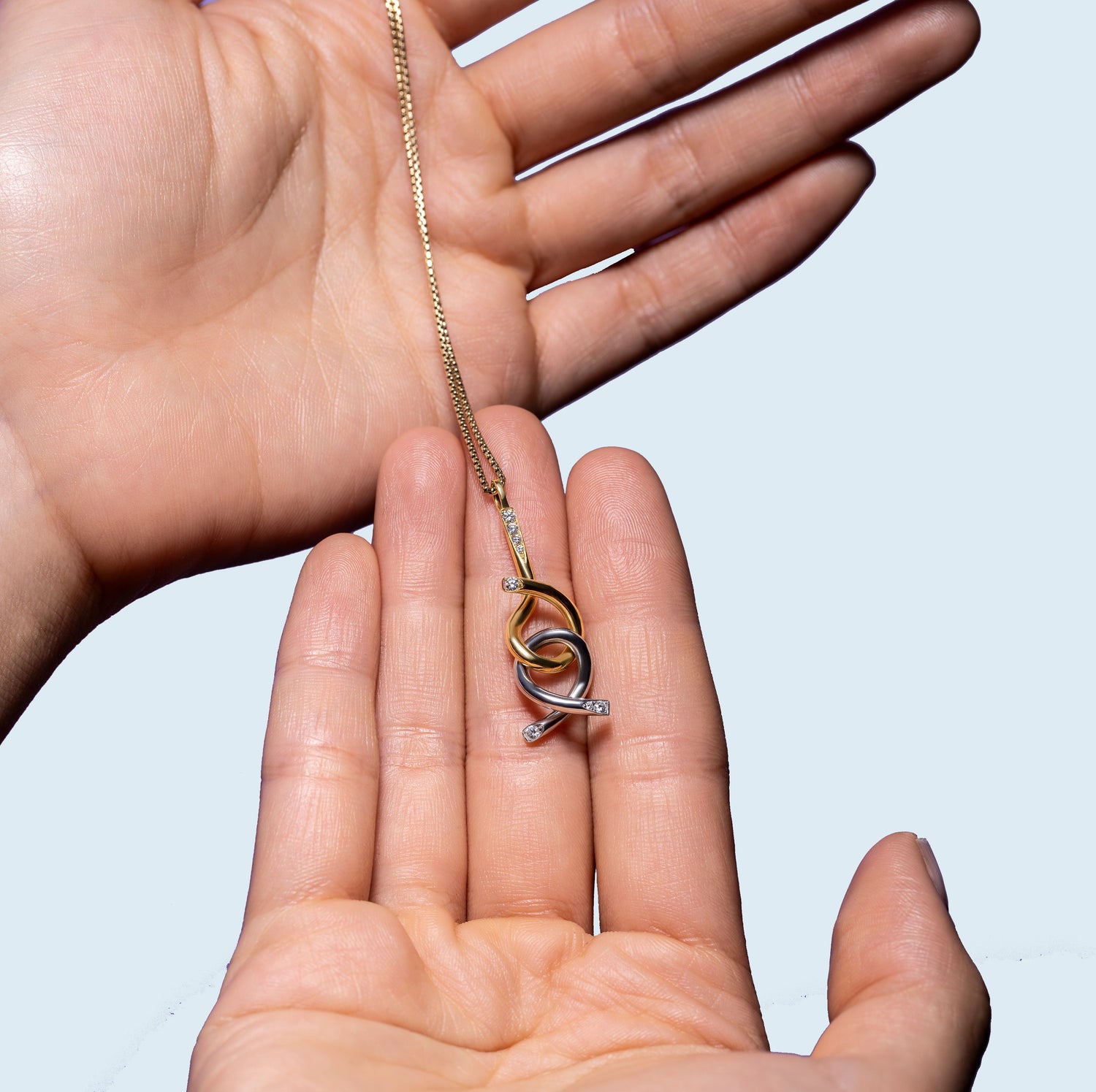
Introducing Grade 23 Titanium in Jewelry: Adaïr's Innovative Choice
Introducing Titanium and Its Application in Jewelry
Titanium, named after the powerful Titan gods of Greek mythology, has emerged as a revolutionary material in the world of jewelry and watchmaking.
Despite being discovered by Martin Heinrich Klaproth and William Gregor in the late 18th century, its integration into jewelry and watchmaking was delayed due to the challenges of extracting and working with this unique metal.
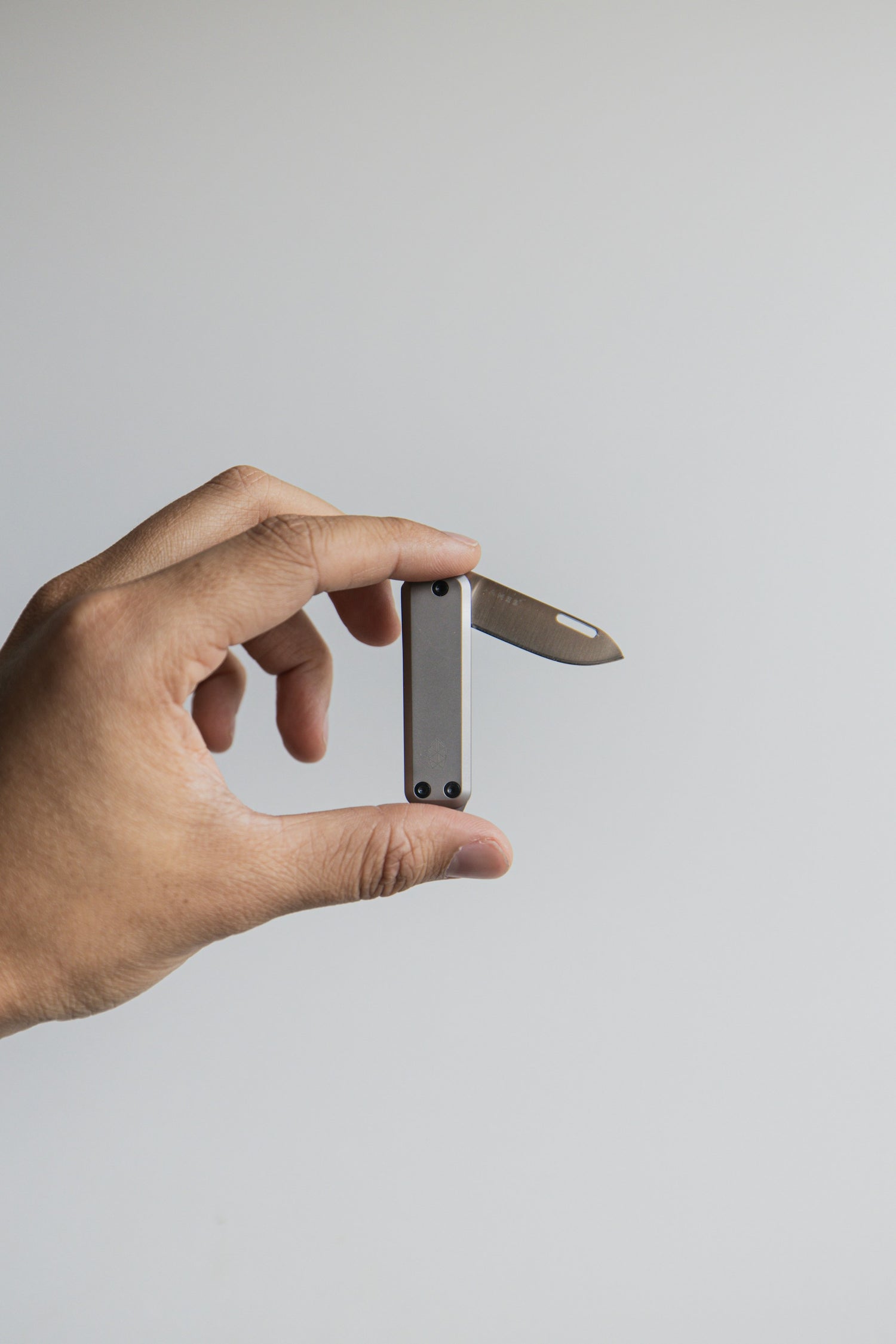
Extremely Durable yet ultra lightweight
Titanium is considered a strong and special metal primarily due to its exceptional strength-to-density ratio. This means that titanium exhibits remarkable strength while being ultra lightweight. In fact, titanium has the highest strength-to-density ratio of any metal, surpassing even low carbon steel in terms of strength while remaining significantly lighter in weight.
This unique combination of strength and lightness makes titanium a preferred material for various applications where durability and reduced weight are critical factors, such as aerospace components, high-performance sports equipment, and advanced jewelry and watchmaking.
The strength of titanium enables it to withstand significant loads and stresses without deforming or breaking, making it a highly desirable material for engineering and design purposes.
High corrosion resistance
Titanium's exceptional corrosion resistance and enduring silver hue, maintained by its robust oxide layer, highlight its durability and aesthetic appeal across industries like marine engineering, aerospace, jewelry, and medical devices.
The formation of a stable oxide layer (primarily titanium dioxide) upon exposure to oxygen shields the metal from further oxidation and chemical degradation, particularly in moist or chloride-rich environments such as saltwater.
This passive oxide layer also prevents chemical reactions, contributing to titanium's resilience in harsh conditions and enhancing its suitability for biomedical applications, where compatibility with bodily fluids is critical.
Moreover, titanium's resistance to electrochemical corrosion, combined with its non-reactive nature to acids and industrial chemicals, underscores its versatility and reliability in diverse environments.
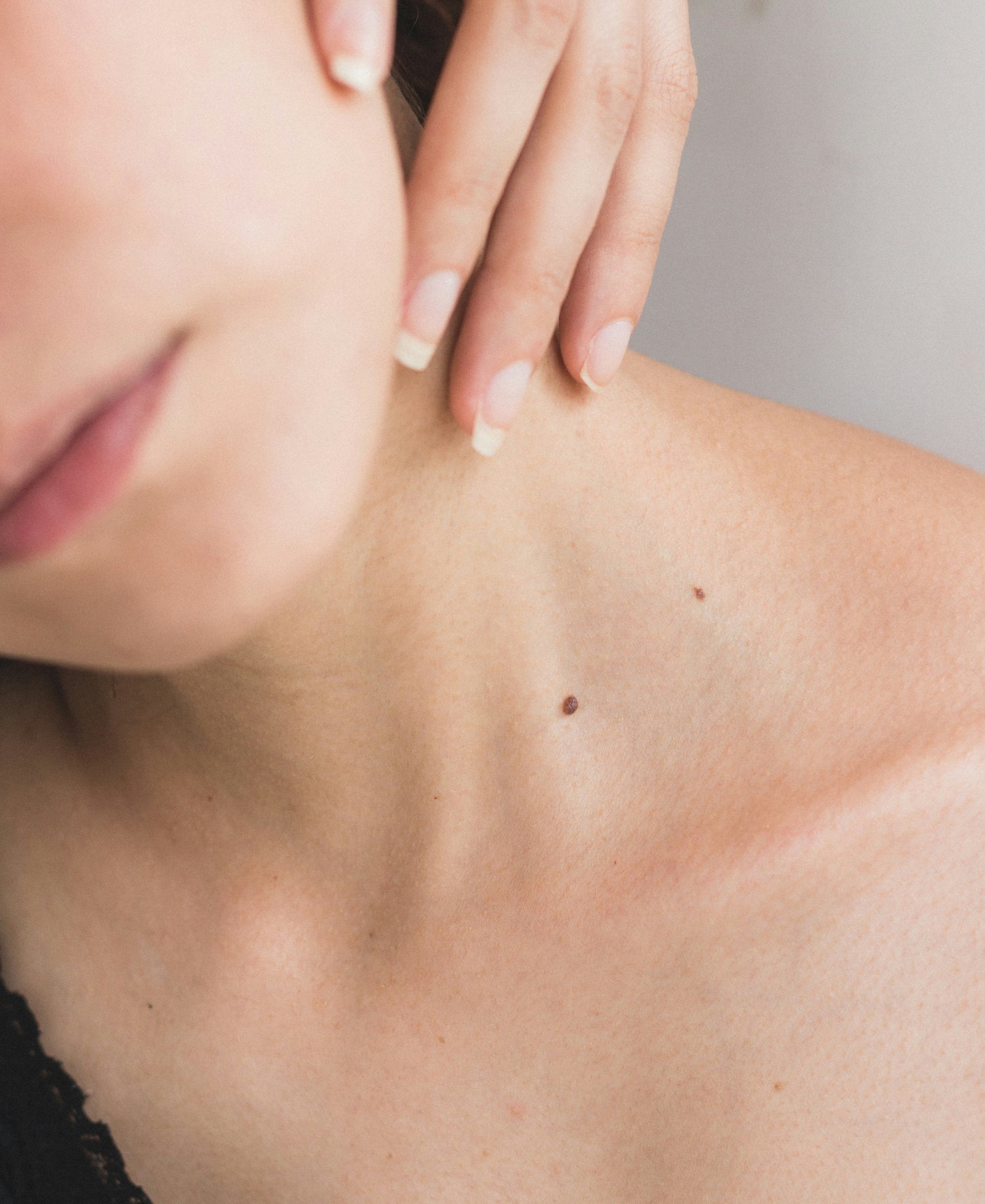
Hypoallergenic nature
Titanium is hypoallergenic due to its biocompatibility and inertness, making it well-tolerated by the human body without causing allergic reactions or skin responses.
Its biocompatibility renders titanium ideal for medical implants like joint replacements and dental fixtures.
Chemically inert, titanium does not react with bodily fluids or skin oils, reducing the risk of irritation or allergic contact dermatitis often associated with metals like nickel or copper. Unlike allergenic metals, titanium lacks skin irritants, making it suitable for individuals with sensitive skin or metal allergies who can wear titanium jewelry comfortably and safely without experiencing skin reactions.
THE MOST EXCLUSIVE GRADE of titanium known as GRADE 23 and Adaïr’s decision to utilize its titanium jewelry line
The exclusive advantages of Titanium Grade 23
Titanium Grade 23 is considered the most exclusive titanium material due to its superior purity and enhanced properties compared to other titanium alloys.
Grade 23, also known as Extra Low Interstitial (ELI) titanium, is distinguished by its reduced oxygen content, with a maximum percentage of oxygen not exceeding 0.13%. This high level of purity enhances the metal's fracture toughness, making it exceptionally strong, lightweight, corrosion-resistant, and tough.
These improved performance characteristics make Grade 23 titanium the top choice for demanding applications, including aerospace, medical implants (such as joint replacements), and high-end jewelry and watchmaking.
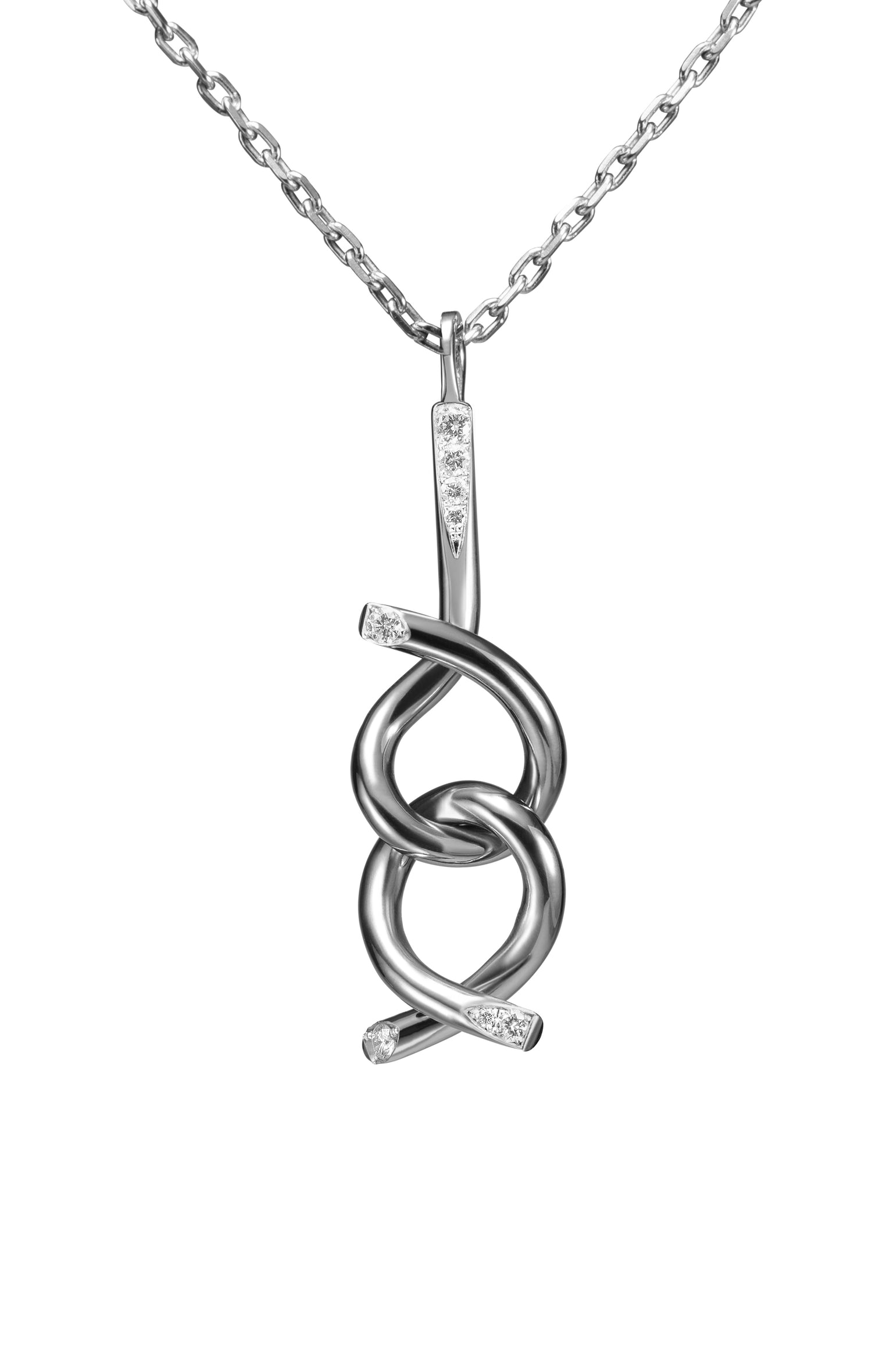
Adaïr's decision to use Grade 23 titanium for its titanium jewelry line underscores its commitment to quality and innovation.
By opting for Grade 23 titanium in the recent 'A' Collection Adaïr ensures that these timepieces not only exhibit exceptional strength and durability but also offer a lightweight and comfortable wearing experience.
The titanium brain teaser necklace benefits from Grade 23 titanium's superior properties, enhancing both the aesthetics and performance of these high-quality jewelry pieces.
The challenges to work with Grade 23 titanium
Despite its virtues, working with Grade 23 titanium presents challenges due to its hardness and toughness. The machining and polishing processes for titanium are significantly more complex compared to steel or gold, requiring specialized techniques and equipment.
Adaïr's meticulous approach involves precise additive manufacturing to minimize industrial waste, followed by highly complex polishing processes to condition the material.
This detailed manufacturing process ensures the production of high-quality titanium jewelry pieces that meet Adaïr’s standards of craftsmanship and durability, reflecting the brand's dedication to excellence and innovation in jewelry making.
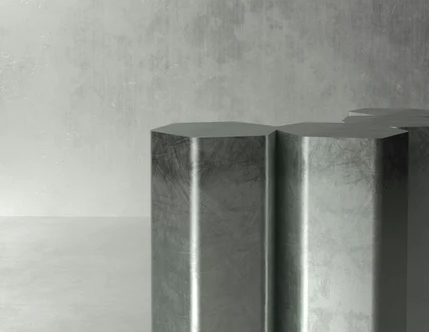
The Benefits of Grade 23 Titanium in Adaïr’s Jewelry Designs
Adaïr's choice of Grade 23 titanium for its titanium jewelry line reflects a deep commitment to quality, innovation, sustainability, and customer satisfaction.
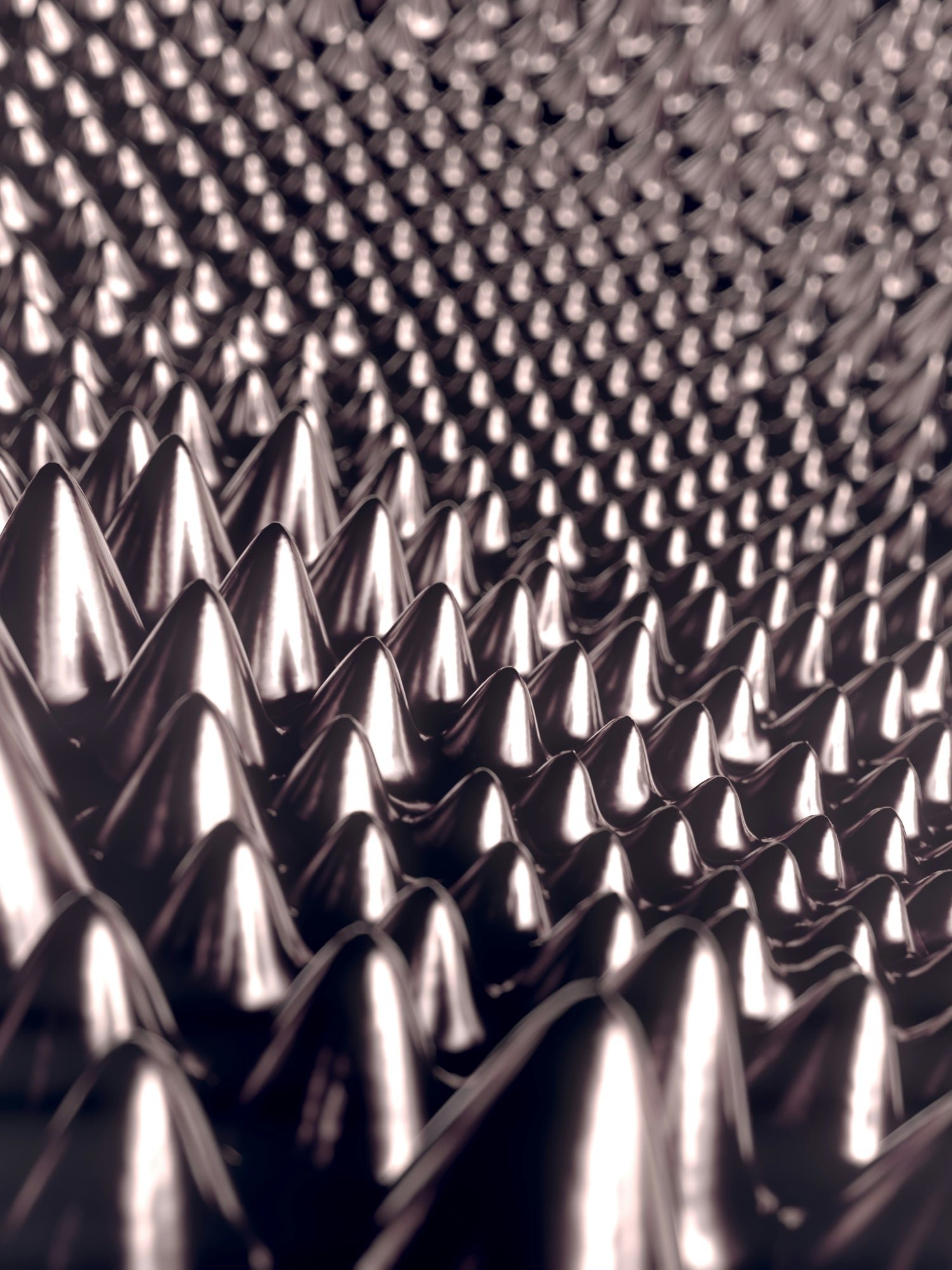
Commitment to Quality
Adaïr is dedicated to using the finest materials in their jewelry designs, ensuring each piece meets exceptional standards of craftsmanship and durability.
Grade 23 titanium, known for its high purity and superior properties, allows Adaïr to create jewelry that not only looks exquisite but also maintains its quality over time. This factor is crucial for Adaïr’s interactive jewelry, where each piece is designed to be manipulated.
Innovation and Sustainability
Grade 23 titanium aligns perfectly with Adaïr's values of innovation and sustainability. By choosing this advanced titanium alloy, Adaïr demonstrates a forward-thinking approach to jewelry making.
Titanium's lightweight nature and exceptional strength-to-weight ratio enable innovative designs while minimizing environmental impact through efficient use of materials.
The additive manufacturing and polishing process also require a combination of sustainability, innovation and craftsmanship that reflects Adaïr’s commitment from the beginning.
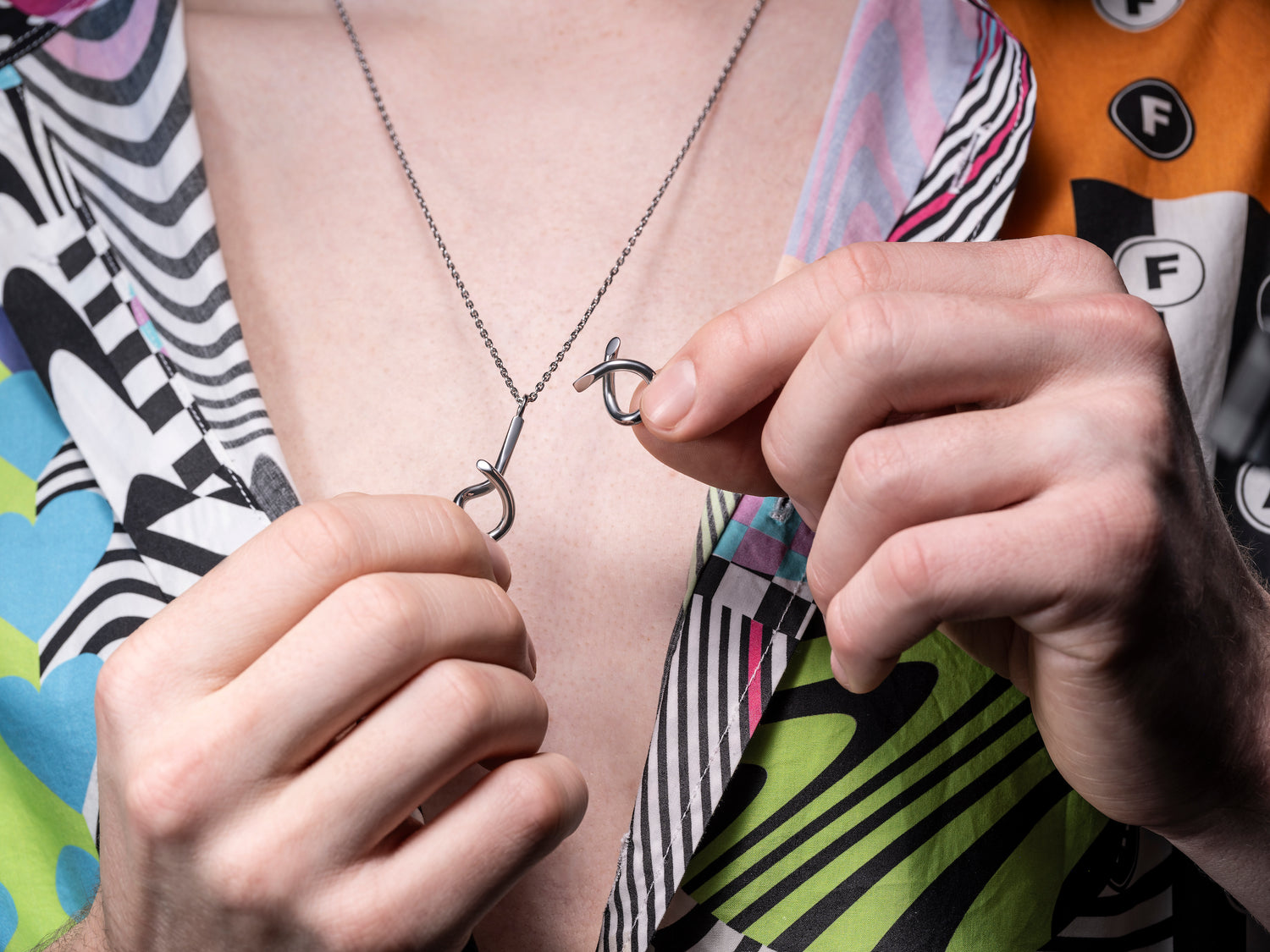
Customer Satisfaction
Adaïr recognizes that using Grade 23 titanium enhances the overall quality and appeal of its jewelry collections, ultimately leading to increased customer satisfaction.
Customers appreciate jewelry that is not only beautiful but also durable, comfortable, and hypoallergenic.
Grade 23 titanium's corrosion resistance and hypoallergenic properties ensure that Adaïr's jewelry pieces can be worn with confidence and enjoyed for years to come.
In summary, Adaïr's selection of Grade 23 titanium embodies our dedication to excellence in jewelry craftsmanship, our commitment to sustainable practices, and our focus on creating exceptional pieces that delight and satisfy their customers.
By leveraging the unique properties of Grade 23 titanium, Adaïr continues to push the boundaries of jewelry design while upholding the highest standards of quality and innovation.
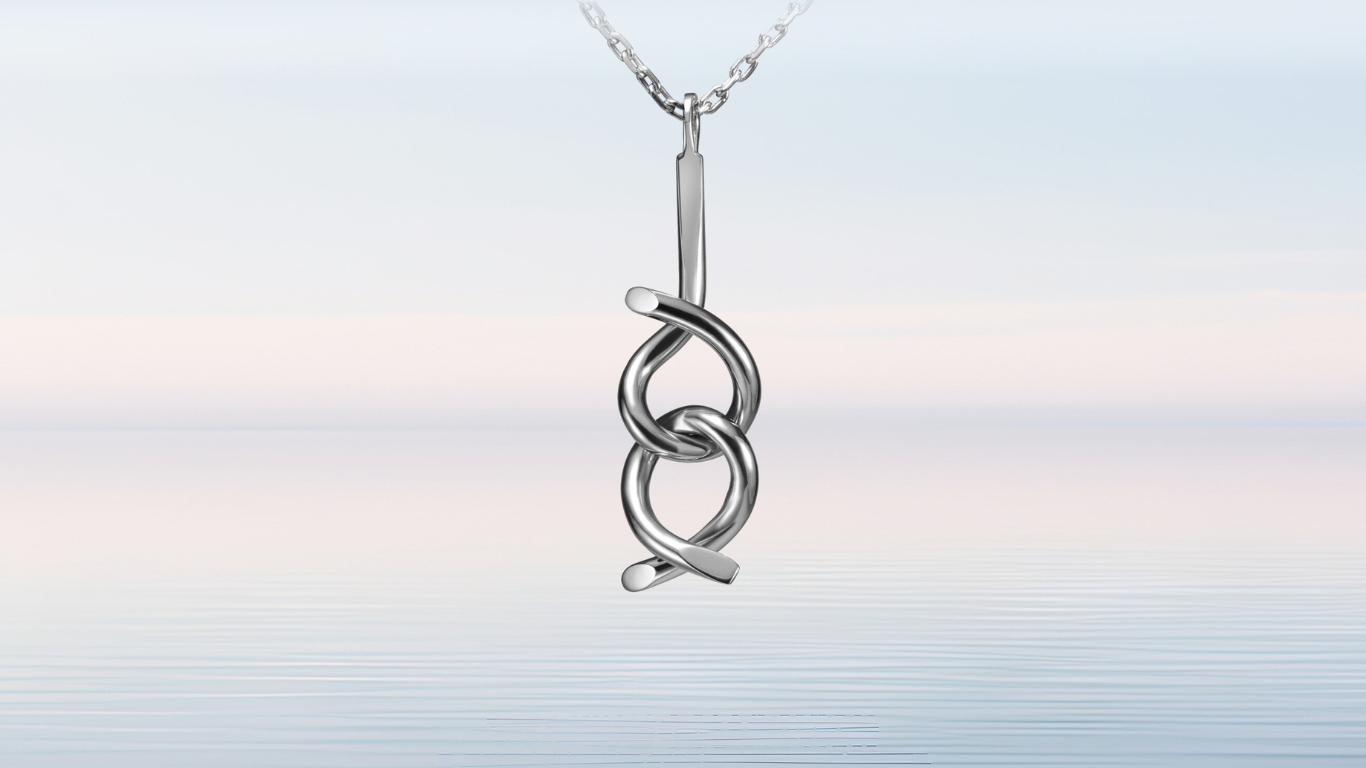
Image sources:
- Guggenheim Museum First Banner: Image by Mario La Pergola on Unsplash: link
- Hand holding a titanium penknife Image: Image by Andrew Teoh on Unsplash: link
- Woman Neck Skin Image: Image by Racool_Studio on Freepik: link
- Titanium Block Image: Image by Allison Saeng on Unsplash: link
- Titanium metallic texture: Image by Unsplash+ in collaboraion with Getty Images: link
